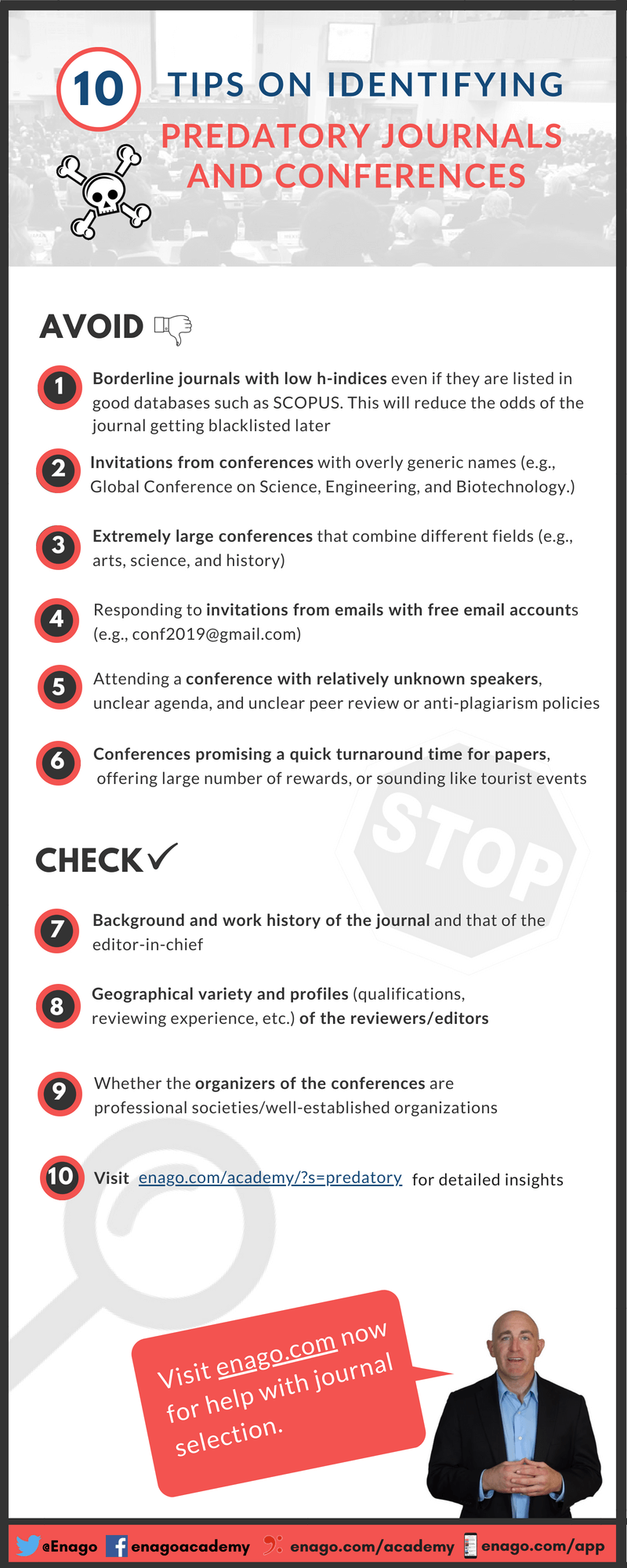Top 10 Tips on Identifying Predatory Journals and Conferences

Submitting your research work to predatory journals/conferences can adversely affect your research career. However, many researchers are unable to distinguish between legitimate journals/conferences and those that are predatory in nature. In this post, we share some useful tips that will help you to identify such predatory conferences and/or journals effectively.










gracias por tanta información
It sounds like you are discouraging researchers from mingling with those that do not accrue prestige in hyper-specialized fields. I use a free hotmail.com e-mail account and am proud of it. When I used a university e-mail account, I felt much more restricted in what I could say or express.
I doubt that the first grand conference in the US to invite, say Dr. Judy Wood, to explain her detailed forensic examination of what physically really happened to the Twin Towers on 9/11, and which will necessarily have to feature speakers from a wide assortment of disparate fields, due to the enormous geopolitical ramifications and import of the subject, the main sponsors of the conference will use e-mail accounts associated with American universities.
Academic science, I have sadly found, is not so much about seeking truth, as about perpetuating grants and status, and controlling access to the revolving door.
Sincerely,
Conrado Salas
http://conradosalas.info
Hi Conrado,
Most major conferences always send email communications through emails registered with their own domains. The is the only way conference organizers can ensure authenticity among its attendees.
We do not discourage the use of free e-mail accounts however, it is not a recommended practice among big conferences. In addition, researchers are free to engage with other researchers using a free e-mail account. The only difference with a university or institute registered email is that the person becomes responsible for his actions or words in the ensuing conversation.
Did you get a chance to install our FREE Mobile App. Make sure you subscribe to our weekly newsletter.